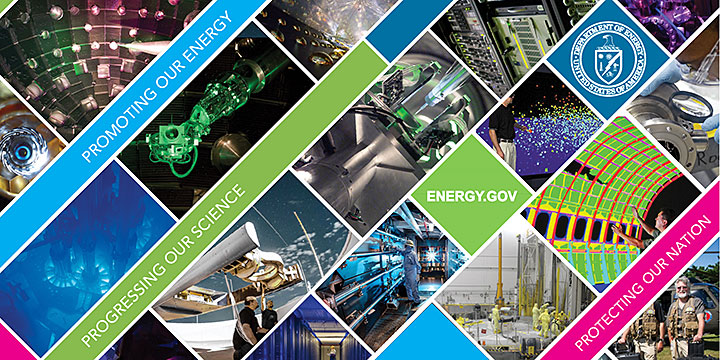Department of Energy Announces $80 Million For New Grid Modernization Lab Call Projects
November 25, 2019
 enlarge
enlarge
Projects funded under the U.S. Department of Energy's 2019 Grid Modernization Lab Call will help strengthen the reliability and resiliency of the nation's power grid. Brookhaven Lab will contribute to a project to develop a machine learning technique for detecting malware threatening the grid.
This news release, issued by the U.S. Department of Energy (DOE) on November 6, announces projects funded through the Grid Modernization Initiative’s 2019 Grid Modernization Lab Call to help improve the resiliency and reliability of our nation’s energy infrastructure. DOE’s Brookhaven National Laboratory—which is part of the Grid Modernization Laboratory Consortium—will receive funding to provide technical support to a machine learning–based malware detection project led by Idaho National Laboratory. The team will develop a robust technique to detect malware threatening the modern power grid, which is vulnerable to cyberattack because it is monitored and controlled through smart grid devices. For this project, Brookhaven will also work with the New York Power Authority and their Advanced Grid Innovation Laboratory for Energy to demonstrate and validate the new technique in a realistic operational environment.
WASHINGTON, D.C.—Today, the U.S. Department of Energy (DOE) announced the results of the 2019 Grid Modernization Lab Call with funding of approximately $80 million over three years. This funding aims to strengthen, transform, and improve the resilience of energy infrastructure to ensure the nation’s access to reliable and secure sources of energy now and in the future.
The 2019 Grid Modernization Lab Call is the latest solicitation released over the past four years by the Grid Modernization Initiative (GMI), a crosscutting effort that focuses public and private partnerships to develop a portfolio of new tools and technologies that measure, analyze, predict, protect, and control the grid of the future. This solicitation is focused on developing projects in resilience modeling, energy storage and system flexibility, advanced sensors and data analytics, institutional support and analysis, cyber-physical security, and generation.
“In order to continue growing our economy and strengthening our national security, we need to invest in projects that bolster the reliability and resiliency of our grid,” said Under Secretary of Energy Mark W. Menezes. “Working together with our National Labs and private sector partners, these projects will establish a stronger, more resilient grid and ensure that Americans continue to enjoy the benefits of unprecedented energy abundance.”
At least two of the DOE’s five applied science offices (the Office of Cybersecurity, Energy Security, and Emergency Response; the Office of Electricity; the Office of Energy Efficiency and Renewable Energy; the Office of Fossil Energy; and the Office of Nuclear Energy) will sponsor each project.
The 2019 Grid Modernization Lab Call will expand on work started in 2016, with two major distinctions—the portfolio of projects emphasizes a fully integrated vision of the energy system, from fuel to generation to load, including interdependent infrastructures while focusing on bulk-power system impacts. In addition, the projects—aiming to maintain the reliability and resilience of the grid—will show meaningful results in 18 months to two years.
The Grid Modernization Laboratory Consortium (GMLC) was established as a strategic partnership between DOE and the National Laboratories to bring together leading experts, technologies, and resources to collaborate on the goal of modernizing the nation’s grid. The benefits of the GMLC include more efficient use of resources, shared networks, better learning and preservation of knowledge, enhanced lab coordination and collaboration, and regional perspective and relationships with local stakeholders and industry. The GMLC will facilitate strong collaboration among the resultant awards to the National Laboratories and their industry partners. A list of the awarded projects, National Laboratories, and partners can be found here.
Brookhaven National Laboratory is supported by the Office of Science of the U.S. Department of Energy. The Office of Science is the single largest supporter of basic research in the physical sciences in the United States, and is working to address some of the most pressing challenges of our time. For more information, please visit http://energy.gov/science.
Follow @BrookhavenLab on Twitter or find us on Facebook.
2019-16901 | INT/EXT | Newsroom









